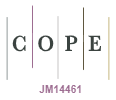The educative systems evaluation in the European Union coutries: from a problematic necessity to a desirable complex practice
DOI:
https://doi.org/10.5585/eccos.v4i2.307Keywords:
avaliação, ideologia, representação, sistema educacional, sistema complexo, União Européia.Abstract
After investing numerous public politics, the process of evaluation reaches the education world. This process, which does not go without any trouble, nevertheless becomes widespread in the whole countries of the European Union. By combining the analysis of the institutional forms and the procedures used on one hand, and the representations which found them on the other hand, it is possible to define three big models of evaluation: the English, French and Finnish models. If it seems justifiable that organizations and educational systems are equipped with instruments of piloting as the evaluation, there is no need to reduce the question only to the technical level. The evaluation is a political question which supposes a collective and democratic consideration on the missions of the school, which is not generally carried out. The most powerful interests groups often appear thus in measure to press on this debate. Another influence appears with the comparisons among the European educational systems, made by the international body of expertises. Thus there is a risk of seeing a technical international evaluation by transparency on the own political foundations acting in the sense of educational systems normalization. In these conditions, the auto-evaluation, a complex process, by which an educational community deliberates on its ends in contact with its local environment and gives the means to know, and this to modify its action, seems at Rapport auprès du Haut once more mobilizing and more in agreement with the social systems variety.Downloads
Downloads
Published
2008-01-09
How to Cite
ROGGERO, Pascal. The educative systems evaluation in the European Union coutries: from a problematic necessity to a desirable complex practice. EccoS – Revista Científica, [S. l.], v. 4, n. 2, p. 31–46, 2008. DOI: 10.5585/eccos.v4i2.307. Disponível em: https://periodicos.uninove.br/eccos/article/view/307. Acesso em: 7 jun. 2025.
Issue
Section
Articles & Essays
Views
- Abstract 296
- PDF (Português (Brasil)) 161








